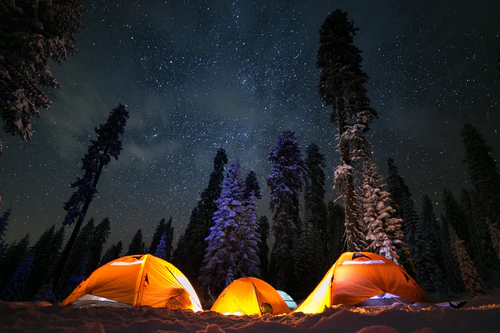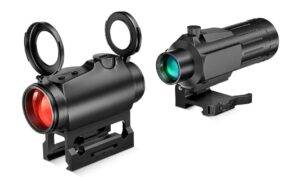
Even in April, which is when spring is supposed to be in full swing, temperatures can vary greatly across the U.S. If you plan on going camping in a particularly cold or elevated region, you need to be prepared.
According to the National Oceanic and Atmospheric Administration, it can dip to 20 degrees Fahrenheit in places like mountainous Colorado. Without the right planning, you and your camping crew can suffer from dehydration, frostbite, and hypothermia.
Even with the dangers that cold weather can pose, you shouldn’t allow it to put an end to your adventures. Here, we’ve offered a guide on how to survive camping in extremely cold temperatures.

Don’t Be Hesitant to Invest in a Quality Tent
Some beginner campers may make the mistake of investing in a cheap and poorly-insulated tent. I don’t know if I’ll be going camping again, I’ll just buy a cheaper tent to save money. This kind of mindset can lead to some miserable nights outdoors. Rather than risk shivering all night, we recommend dropping some money on a quality tent.
A good tent for camping in extremely cold conditions should retain heat, keep water out, and be lightweight enough for portability. William Chutney did a great job of breaking it down, so you’ll know exactly what to look for when purchasing a camping tent to use in the cold weather.
Once you arrive at your campsite with your new tent, follow these tips to get the most optimal use from it:
- Buddy Up: If you’re camping with another person, place your sleeping bags close together to prevent heat loss.
- Line Your Tent with Your Gear: Place all of your extra clothing and gear around the inside of your tent to provide further insulation.
- Make a DIY Radiant Barrier: While your well-built tent should keep out most of the cold, you can’t go wrong with a DIY radiant barrier. Take a space blanket and secure it to the tent’s ceiling to keep heat from leaving your tent.
Check the Weather Before You Go
Chances are you know the general climate of your area pretty well. However, you should still check the weather before you go. There may be impending cold weather desert fluctuations or other unforeseen hazards.
Before you set out for the drive to your campsite, call a nearby ranger station ahead of time. This way, you won’t waste time traveling only to have to turn around. And, you won’t find yourself hours into your camping trip only to find that the weather isn’t ideal.
Bring the Right Sleeping Clothes
When you’re asleep for the night, you want to prepare your body for the dropping temperatures. Here are some guidelines to keep in mind when choosing what kind of sleeping clothes to bring:
- Leave your cotton PJs at home: Cotton will not wick moisture and can cause your body temperature to drop. Plus, it’s often a resting place for bacteria.
- Avoid tight-fitting clothing: While it’s okay if your clothes are snug, avoid overly tight clothing that can restrict blood flow to your limbs.
- Wear wool or synthetic fabrics: Wear fingered gloves, a cozy beanie, and warm socks made of wool or synthetic fabrics.
Sleep in Shifts on Nights with High Wind
High winds and cold weather often go hand-in-hand. If you experience a lot of wind on some of your outdoor nights, sleep in shifts with your camping buddies. Have one person stay awake to make sure the tent is still secured; ideally, someone should be checking every hour or so. Whoever is awake can eat a calorie-dense snack like nuts, cheese, or chocolate to stay warm.
While camping in extremely cold weather can seem intimidating, it is doable with the right safety precautions in mind. When possible, always try to go camping with another person who can help you navigate the challenges that come with being outdoors in the cold weather.







